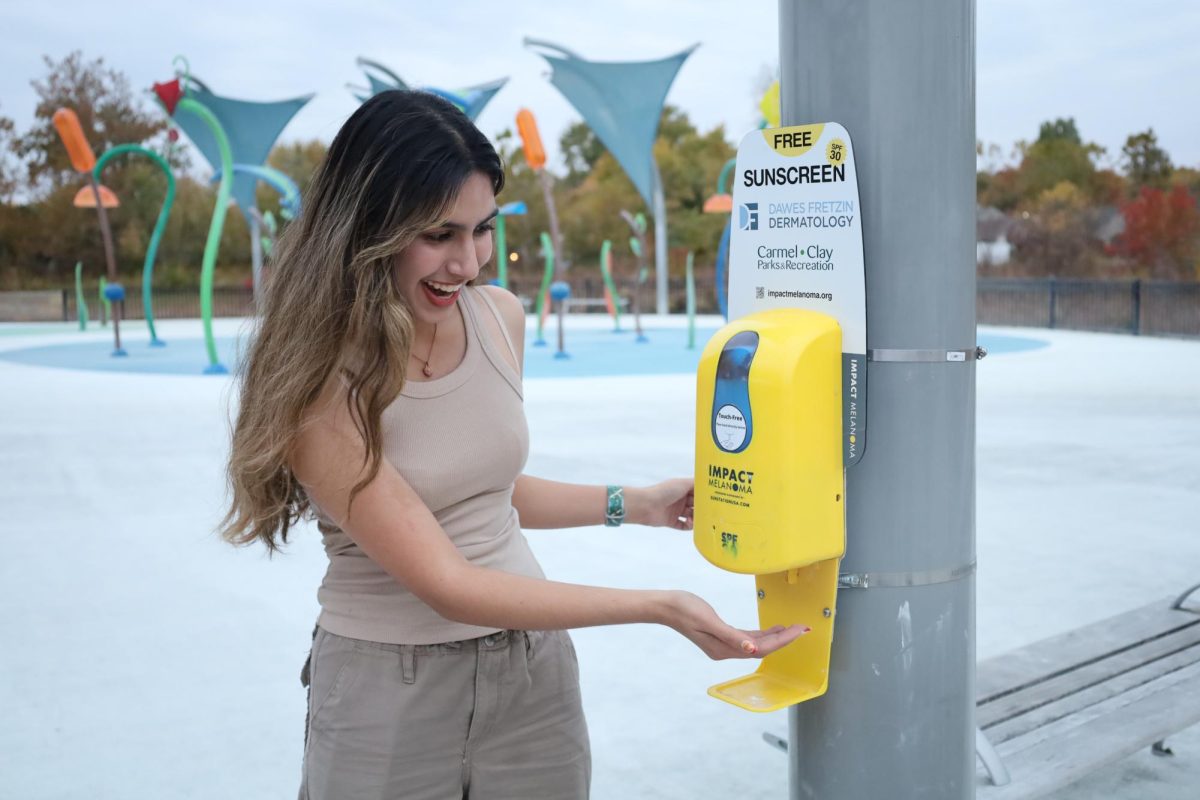By Aili Arnell
<[email protected]>
Walking through the hallways of this school, one may see the occasional “Go Green” shirt or recycled handbag. These purchases may be fashionable and trendy, but some believe that they are not necessarily helping the environment.
According to one report in the New York Times, some 35 million Americans regularly buy products that claim to be earth-friendly, including items varying from organic beeswax lipstick from the west Zambian rain forest to Toyota Priuses.
George Ohmer, sponsor of The Healthy Environment (T.H.E.) Club, said, “I think it is great and amazing that people are finally beginning to jump on the bandwagon. I do believe that all of these followers are helping. They are bringing so much attention to the cause. Some people do need to be better educated on what to do to properly assist the environment though.”
Consumers have embraced living green, and for the most part the mainstream green movement has embraced green consumerism. But, even at this moment of high visibility and impact for environmental activists, a splinter wing of the movement has begun to critique what it sometimes calls “light greens.”
Critics question the notion that we can avert global warming by buying so-called earth-friendly products, from clothing and cars to homes and vacations, when the cumulative effect of our consumption remains enormous and hazardous.
Alex Steffen, the executive editor of Worldchanging.com, a Web site devoted to sustainability issues, said, “There is a very common mind-set right now which holds that all that we’re going to need to do to avert the large-scale planetary catastrophes upon us is make slightly different shopping decisions.”
The genuine solution, critics like Steffen say, is to significantly reduce one’s consumption of goods and resources. It’s not enough to build a vacation home of recycled lumber; the real way to reduce one’s carbon footprint is to only own one home. Another example, buying a hybrid car won’t help if it’s the aforementioned Lexus, the luxury LS 600h L model, which gets 22 miles to the gallon on the highway; the Toyota Yaris ($11,000) gets 40 highway miles a gallon with a standard gasoline engine.
—
Green Facts
- 4 tons of mercury released each year by compact fluorescent light bulbs
- 100 percent increase of greenhouse gas emissions over 30 years produced by ethanol production
- 28 how many times more energy used to create a reusable bag than a traditional grocery bag
WALL STREET JOURNAL, NATURALNEWS.COM, FOX NEWS / SOURCES































!["Wicked" poster controversy sparks a debate about the importance of accuracy versus artistic freedom [opinion]](https://hilite.org/wp-content/uploads/2024/11/riva-perspective-cover-1200x471.jpg)


![Chilling or Childish? The downfall of modern horror movies [opinion]](https://hilite.org/wp-content/uploads/2024/10/adjusted-horror-cover-1200x471.jpg)
![“Uglies” is a call for change in the YA dystopian genre [opinion]](https://hilite.org/wp-content/uploads/2024/10/Perspectives-Cover-1200x471.jpg)












































![Review: Indy Scream Park is a perfect level of spook to kickstart the Halloween season [MUSE]](https://hilite.org/wp-content/uploads/2024/11/IMG_1383.jpg)
![Review: “Saturday Night” is a chaotic and thrilling look at the origins of “Saturday Night Live” [MUSE]](https://hilite.org/wp-content/uploads/2024/10/snl-1200x800.jpg)
![Review: “Megalopolis” is a bold, bewildering mess [MUSE]](https://hilite.org/wp-content/uploads/2024/10/MV5BYTk3MjUzMGItYmU1NC00M2YyLThmNDMtNDI4NjkxNjgzMjQzXkEyXkFqcGdeQXRyYW5zY29kZS13b3JrZmxvdw@@._V1_-1200x675.jpg)
![Review in Print: Maripaz Villar brings a delightfully unique style to the world of WEBTOON [MUSE]](https://hilite.org/wp-content/uploads/2023/12/maripazcover-1200x960.jpg)
![Review: “The Sword of Kaigen” is a masterpiece [MUSE]](https://hilite.org/wp-content/uploads/2023/11/Screenshot-2023-11-26-201051.png)
![Review: Gateron Oil Kings, great linear switches, okay price [MUSE]](https://hilite.org/wp-content/uploads/2023/11/Screenshot-2023-11-26-200553.png)
![Review: “A Haunting in Venice” is a significant improvement from other Agatha Christie adaptations [MUSE]](https://hilite.org/wp-content/uploads/2023/11/e7ee2938a6d422669771bce6d8088521.jpg)
![Review: A Thanksgiving story from elementary school, still just as interesting [MUSE]](https://hilite.org/wp-content/uploads/2023/11/Screenshot-2023-11-26-195514-987x1200.png)
![Review: "When I Fly Towards You", cute, uplifting youth drama [MUSE]](https://hilite.org/wp-content/uploads/2023/09/When-I-Fly-Towards-You-Chinese-drama.png)
![Postcards from Muse: Hawaii Travel Diary [MUSE]](https://hilite.org/wp-content/uploads/2023/09/My-project-1-1200x1200.jpg)
![Review: "Ladybug & Cat Noir: The Movie," departure from original show [MUSE]](https://hilite.org/wp-content/uploads/2023/09/Ladybug__Cat_Noir_-_The_Movie_poster.jpg)
![Review in Print: "Hidden Love" is the cute, uplifting drama everyone needs [MUSE]](https://hilite.org/wp-content/uploads/2023/09/hiddenlovecover-e1693597208225-1030x1200.png)
![Review in Print: "Heartstopper" is the heartwarming queer romance we all need [MUSE]](https://hilite.org/wp-content/uploads/2023/08/museheartstoppercover-1200x654.png)




